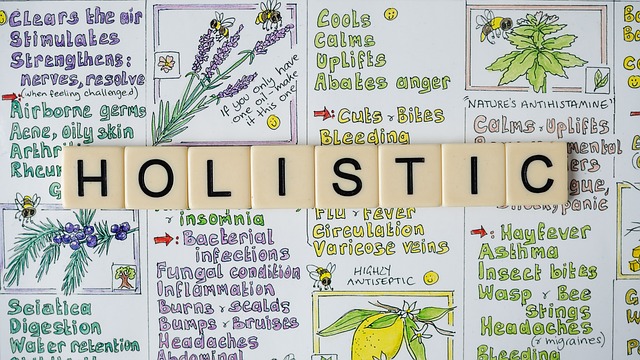Contact Us (720) 964-1335 or (901) 675-6125

Introduction
If you’ve been working hard to lose weight—counting calories, staying active, eating clean—but still feel stuck, there may be a deeper reason your efforts aren’t working: your stress response system. Specifically, the HPA axis (Hypothalamic-Pituitary-Adrenal axis) might be out of sync.
This powerful hormonal system regulates your response to stress, controls your cortisol levels, and plays a major role in metabolism, energy, and fat storage. When it’s dysregulated, the result can be stalled weight loss, chronic fatigue, cravings, and even weight gain.
At Ample Health & Wellness, we help women over 40—especially those on or off GLP-1 medications—understand the root causes behind their health plateaus. Resetting the HPA axis is often the missing piece in achieving sustainable weight loss and feeling better from the inside out.
What is the HPA Axis and Why Does It Matter?
The HPA axis is the communication network between your hypothalamus, pituitary gland, and adrenal glands. This trio helps your body respond to physical, emotional, and environmental stress. When stressors arise—whether it’s lack of sleep, poor blood sugar control, emotional tension, or even overexercising—the HPA axis tells your adrenal glands to release cortisol, your main stress hormone.
While cortisol is necessary in small bursts, chronically elevated cortisol can wreak havoc on your health and your weight. Over time, an overstimulated HPA axis can lead to:
- Increased belly fat storage
- Insulin resistance and blood sugar imbalances
- Slowed metabolism and thyroid suppression
- Muscle breakdown
- Food cravings and binge episodes
- Sleep disturbances and fatigue
This is why you might be doing “everything right” on paper but still feel burned out, heavy, and stuck.
How to Reset Your HPA Axis for Weight Loss
Resetting the HPA axis isn’t about adding more to your plate—it’s about doing less of what stresses your system, and more of what brings it into balance.
💤 1. Prioritize Sleep Like It’s Non-Negotiable
Sleep is when your body heals, resets hormones, and recharges metabolism. Poor sleep keeps cortisol high and ghrelin (your hunger hormone) even higher.
- Aim for 7–9 hours of high-quality sleep
- Create a wind-down routine: stretch, read, or journal
- Reduce blue light exposure from phones and screens 1–2 hours before bed
🧘🏾♀️ 2. Actively Manage Stress
You can’t eliminate all stress—but you can train your body to respond more calmly.
- Practice breathwork like 4-7-8 or box breathing
- Try gentle yoga, grounding walks, or guided meditations
- Use journaling or prayer as a mental reset
Even 10 minutes a day of intentional calm can quiet an overactive HPA axis.
🍳 3. Balance Blood Sugar to Balance Hormones
Spikes and crashes in blood sugar can act like mini stress events for your body.
- Pair protein and healthy fats with every meal
- Avoid skipping meals or relying on caffeine and sugar to get through the day
- Eat within 1–2 hours of waking to stabilize morning cortisol
🏋🏽 4. Exercise Smarter, Not Harder
Too much intense exercise (like daily HIIT or long cardio sessions) can make HPA dysfunction worse.
- Focus on moderate movement: strength training, Pilates, barre, walking
- Give your body rest days to recover
- Let energy, not guilt, guide your workouts
🌿 5. Support with Nutrition and Adaptogens
Certain nutrients and herbs help your body adapt to stress and rebuild hormonal harmony.
- Magnesium (especially glycinate) to calm the nervous system
- B vitamins for energy and adrenal support
- Omega-3s to reduce inflammation
- Ashwagandha, rhodiola, or holy basil may help—but always consult a practitioner
💚How Ample Health & Wellness Can Help
At Ample, we go far beyond calories and cardio. Our coaching is built for real women with real life stress, helping you regulate your body’s systems holistically.
We help you:
- Identify signs of HPA dysfunction
- Integrate practical breathwork and stress tools into daily life
- Learn nourishing, hormone-friendly nutrition
- Create a sustainable, enjoyable routine—not one that burns you out
Whether you’re on GLP-1 medication or managing weight with natural approaches, your nervous system needs support. Let us help you get back in sync so you can lose weight without feeling like you’re fighting your body.
📩 Ready to Reset?
If you’re exhausted, inflamed, and frustrated with stalled progress—don’t give up. You may not need more willpower. You may just need an HPA reset.
✨ Learn how Ample can guide you through a nervous system reset for better weight loss → amplehealthandwellness.com

About the Author: Written by Dr. Kisha Pickford, DNP, a Nurse Practitioner and Certified Holistic Nutrition Weight Loss Coach at Ample Health & Wellness. She helps women 40+ achieve sustainable weight loss and whole-body wellness.
📚 References
- Firth, J., et al. (2019). “The role of chronic stress in obesity and metabolic disease.” Psychoneuroendocrinology, 101, 32-42.
- Herman, J. P., & McKlveen, J. M. (2022). “Regulation of the hypothalamic-pituitary-adrenal axis in metabolic health.” Endocrinology, 163(3), bqac001.
